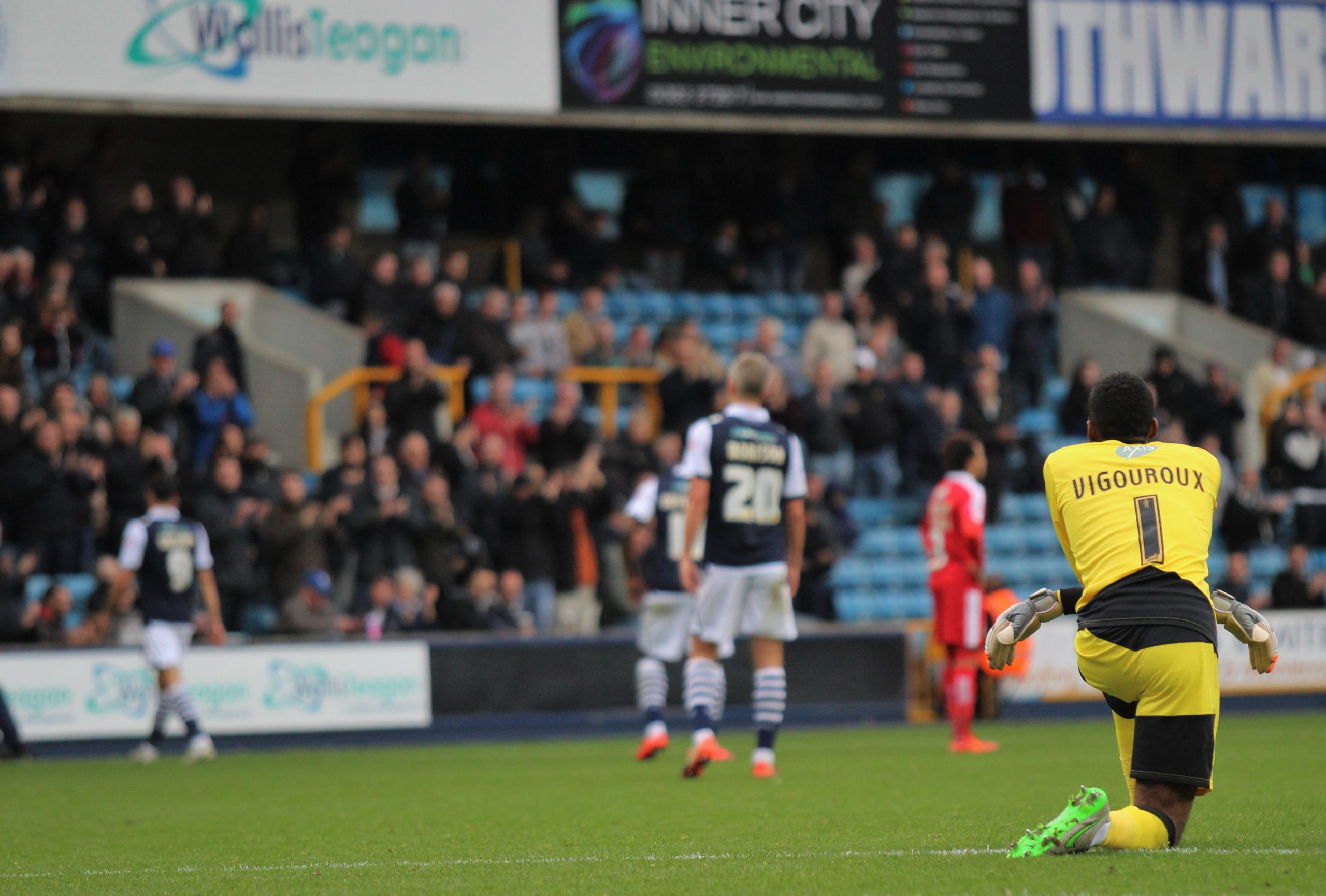Saturday 5th of December signalled for many football fans a return to the stadiums which they adore. For many clubs playing this weekend in London; now in the tier two category, supporters returned in reduced numbers to cheer on their respective teams. A sense of optimism undeniably must have been the overwhelming emotion for a majority of these lucky fans, with a return to the normality much of us have craved since the start of the Covid-19 pandemic becoming a reality at last. But with this return to the norm came additionally, at least for the football world, a realisation that the norm is not always desirable. It is in fact in many ways vile.
It’s now standard procedure for English football games to be preceded by players taking a knee in solidarity with the ‘No Room for Racism’ initiative backed by the Premier League. Following the events of the past year, the growing international development across many peoples of many places to recognise, protest and oppose various forms of racism and ethnic discrimination has been crucial in progressing the fight for social equality.
It’s been widely recognised, by almost all those who possess either a degree of intelligence, ounce of understanding or a desire for anti-bigotry, that racism exists both directly and indirectly, structurally and institutionalised, complicity and non-complicitly. It’s these values which a large proportion of society is now striving for and working towards in the goal of reaching a point of tolerance, acceptance and humanity. A sub-section of Millwall fans however, don’t subscribe to this required need for change, their ideology of promoting hatred and prejudice based on the colour of one’s skin was evident on Saturday, when they decided to boo the taking of the knee with a snarling disregard for the aforementioned values.
Millwall supporters have a long held a reputation for being outsiders. They recognise hooligan culture, with all its excessive drinking, anti-social behaviour and language, senseless violence and discriminatory chanting to be fundamental to a good old Saturday afternoon at the footy. Their chant ‘No one likes us, we don’t care’ may sound humorous, but contextually it indicates a darker and more sinister truth that endorses and incorporates outward racism whenever they deem necessary or indeed funny. It’s these values which so deeply plague football that it often becomes difficult to justify the return of fans to the terraces. Unfortunately, this isn’t an isolated event, many clubs including Chelsea, Tottenham and Burnley have in the last year seen racial discrimination occur within their fanbases, and this isn’t even mentioning the significance of the racial incidents occurring at an international level in Italy, Bulgaria, Russia, France, Holland, Ukraine and Montenegro. It grows increasingly difficult for many avid football supporters to be involved in the game which they love when the reality of a match day can be so foul, senseless and filled with abhorrence.
The dire situation football now finds itself in is made increasingly worse by the legitimising of these actions by government officials. Environment Secretary George Eustice, when questioned about the events at Millwall, branded BLM as a “political movement” and failed to directly condemn the fans for their actions. England FA chief Greg Clarke resigned only last month for his use of the term “coloured players” whilst attending a parliamentary hearing which included diversity and inclusion within sport as one of the main topics of discussion. It’s evident that when trying to combat racism, one of the vital tools in the fight is progressive and supportive institutions with leadership that understands the seriousness of the current situation. How can racism be effectively opposed when the very people who are supposed to be leading the campaign against it either deny its existence or themselves are racist? The FA and the current government share saddening similarities in that they are both deeply outdated, structurally rotten and in desperate need of change.
Where do we go from here? This question has been asked one too many times in the footballing world. A constant demand for point deductions for clubs whose supporters engage in racial outbursts has fallen on deaf ears, whilst the ongoing and frankly ineffective method of fining financially rich owners has evidently proved unsuccessful in terms of reducing racism within the sport. Real change, institutionally and at a club level, is required if those that govern truly intend to rid the game of this hatred. Severe punishment for those who commit these acts, a restructuring of the governing bodies, as well as a practical and strategic plan to combat racism must occur if we are to ever reclaim our beautiful game.
Callum Pinches
Image source: Wikimedia Commons

